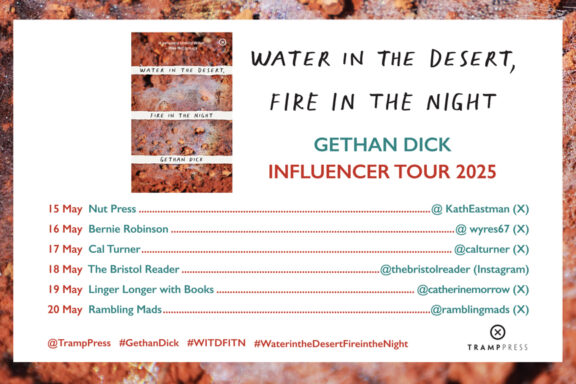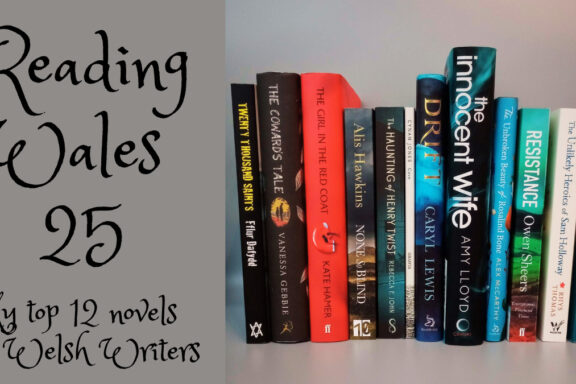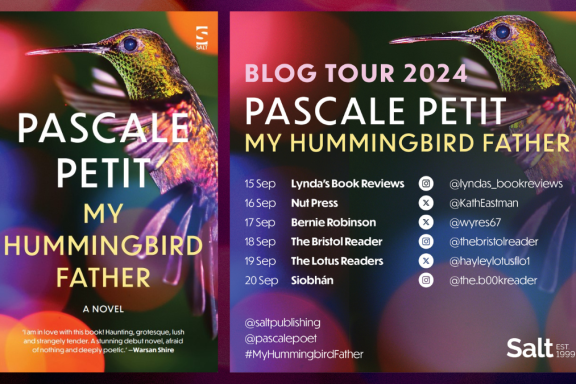 One of the most popular blog posts I’ve written to date was a post I wrote in 2010 asking Does Twitter sell books? I posted a picture of my Twitter Towers (all the books I’d heard about through the social networking site) and categorised them, and generally thought that Twitter was pretty good at selling books. To me, at any rate!
One of the most popular blog posts I’ve written to date was a post I wrote in 2010 asking Does Twitter sell books? I posted a picture of my Twitter Towers (all the books I’d heard about through the social networking site) and categorised them, and generally thought that Twitter was pretty good at selling books. To me, at any rate!
Three years on and I am still getting book recommendations through the social networking site, while also sharing my own favourite reads and joining in conversations about books I’ve read, am reading or want to read. Some of the discussions I enjoy the most are those where Twitter or a book blogger gets excited about a book.
But by its very nature, social networking wouldn’t be social if all I did was scour Twitter for book recommendations and run away to read them. You follow people and they follow you and you chat and connect. Sometimes you even become friends and not just people chatting on virtual coffee-breaks in 140 characters. And because some of those people on Twitter are authors, you may get friendly with one or more of them and want to read one of their books or they might even ask you to read one.
And this is where I run the risk of crossing over to what I see as the dark side of those lovely Twitter Towers and entering Bookish Mordor.
It doesn’t matter how open-minded a Frodo you are when you start out on that new book, you can be a veritable Samwise Gamgee in your outlook, but there will always be some books that you simply will not get on with/like/enjoy/be able to restrain yourself from wanting to fling across the room.
Because, sadly, and I really wish this didn’t happen, even when you like the person, you won’t always like the book(s) they write. And when you don’t, you basically feel lousier than Gollum on a bad day without his precious or like the lowest form of Orc-life.
The question then is: what do you do about that?
Do you quietly give up on the book and not mention it again but continue to chat to the author and try and support them in whatever way you can without endorsing that book? That’s what I try to do. It takes a lot of time, hard work and energy to write a book and I don’t really want to publicly knock anyone who manages to finish one. Just because I didn’t enjoy this particular book doesn’t mean that I won’t like their future books, anyway. And besides, I see book reviews as recommendations, and why would I want to review a book I didn’t enjoy? That may mean my book reviews are all skewed towards the 3*, 4* and 5* end of the scale but I don’t have time to review all the books I read as it is. (57 so far this year at the time of writing this.) In her post about reading as part of a book group Have you ever thrown a book across the room? literary agent Rachelle Gardner also seems to favour keeping quiet, and that’s in circumstances where the author presumably isn’t a member of or taking part in the book group meeting.
Where it gets trickier, of course, is when the author either knows that you’re reading their book and they’re keen to know what you think of it or worse yet, they’re waiting for you to review it, either as a stand-alone review or as part of a book blog tour? What then? Do you say it’s not for you and ask to be excused from writing the review or withdraw from the tour? Or do you tell them that the book wasn’t for you and offer them the choice of still having you write an honest and fair review of it or withdrawing, or do you go ahead and post a review, saying what you thought of it, because the author asked for a review and they ought to accept whatever you write (even if it’s part of a book promotion tour) without automatically expecting it to be a glowing 5* review?
What would you do? Or what do you do, when this happens to you?
Image courtesy of marin / FreeDigitalPhotos.net



One time when this happened, I contacted the author privately with my beef, which was that the only characters I gave a rip about were minor and killed off shortly after introduction. I did point out that I had the flu when I read it, and that could have affected my reaction (although I tend to be less picky about my escapism when sick). I felt he should know why I wasn’t planning to review it. He took it OK.
Thanks, Larry. I think I’d always prefer to contact the author privately by email and let them know it wasn’t for me. I’m not sure I’d give any detail of what I didn’t enjoy unless they asked me for it. But, like you say, on the rare occasion when this happens, the author has been fine about it. I think most reasonable people realise that not everyone enjoys the same books.
Hi Kath, it’s undoubtedly a tricky one. I used to write plays and saw lots of performances supporting fellow writers and actors and that was the same sort of thing, but there you could always blame a bad play to the actor, or that the actors/directors just didn’t get the play if talking to the writer! With books there’s just no scapegoating. When I’m reviewing books for Booksquawk, if I really don’t like it I probably won’t finish it and I won’t review it either – we’re not obliged to post a review of things we’re sent or inquired if we’ll review. Fortunately when it comes to friends, I haven’t yet encountered a book so bad as to want to fling it across a room. I did have a book of flash by two writers, one who was my friend and far more skillful a writer than the writer she was sharing the collection with. I agonised over the part of the review concerning the lesser writer and eventually emailed it to my friend to see whether I should go ahead and publish it. Fortunately she said yes, it was honest so go ahead.
I just don’t think there’s any easy answer to this
That was a tough call, both for you and your friend. Did you get any feedback from the other writer, either via your friend or directly? Agonising over it is exactly what I do but I can’t write a review that I wouldn’t stand behind just because it’s for a friend of mine. I’d rather not write one and try and support them in other ways, in that case.
Hi Kath! I found your post really interesting and can relate to many of the issues you raise through my experiences with the Literary Sofa. Like you, I prefer to spend my time spreading word of books I’m happy to recommend rather than knocking those I dislike – and as a fellow writer, I completely agree about having some respect for anyone who’s not only written a novel but got it published (no small achievement!) – our opinions are just that, but when you write a blog, people take notice and I don’t think it’s fair to put other people off.
Without setting out to do so, I realise I’ve developed some strategies which seem to help. I never agree to review a novel in advance of reading it. Anyone sending me titles knows I will tweet and talk about the book if I enjoyed it. I stick to the common code of not reviewing writers I know personally, and I wouldn’t even be that comfortable reviewing someone I ‘know’ on Twitter. There are so many interesting books out there that I’ve never found myself stuck for something to write about. If I get published I will drop the reviewing – I’m doing less and less already due to time pressure.
And yes, I think it’s perfectly possible to like someone a lot and yet not enjoy their writing – it doesn’t mean you can’t still be supportive and encouraging.
Thanks so much for your thoughtful comments, Isabel. It’s great to hear that the issues aren’t mine alone and I think you’ve been very sensible to come up with coping strategies for dealing with them. I think I probably would have done the same if I hadn’t stumbled into reviewing other people’s books. When I first started putting reviews up on the blog, I didn’t know any of the authors and was simply doing a write-up of a book I’d enjoyed reading. Being on Twitter changed that to a certain extent, because it allowed me to follow (not stalk!) authors I enjoyed reading and was interested in and through that, I’ve become friendly with some of them. I’m not sure that I want to stop reviewing their books though, especially if it’s a book that I would recommend to friends and family. I think I will only be agreeing to review a book once I’ve read it from now on, though!!
Ooh, Kath, that is a tricky one! I guess it’s harder to be honest with friends, whether virtual or real – they are so tied up with their efforts that it feels as though disliking their output is disliking *them* in an odd kind of way! Likewise, I don’t mind the odd 1* review, but only if it’s from someone I don’t actually know, either on Twitter or in real life. So I guess if I was ever in this situation I probably wouldn’t review the book, I’d just go very quiet about it. If the author asked me ‘what happened to my book you were going to review’, then you could just say ‘it really wasn’t my sort of thing, so I couldn’t do a fair review of it…I don’t usually review books about..'(pick a central theme and pray it’s not one you’ve done a review on recently. I’d always try to add a ‘because’ (even if I had to invent one…’I don’t do books that feature aardvarks, because we had an aardvark we loved dearly and he died recently and it brings it all back too much’.. that sort of thing.)
Just forget that book, pretend it never happened, and continue the friendly relationship!
Wise words, Jane – and I’m very sorry to hear about the aardvark. That must have been a terrible loss for you and your family.
I’m not sure I’d ever be comfortable writing a 1* star review, let alone for someone I *know*. Others disagree, though. I have some (non-writer) friends who think that if I only ever review highly-rated books, that it’s not very balanced. However, like you, I’d prefer to go quiet and not mention that I didn’t enjoy that particular book.
OMG, Jane Lovering, so that apologetic yarn you spun me about not reviewing books with aardvarks in it was just a LIE?!
Well, now I know where I stand. *Fumes*
Disgruntled Author
🙂
Have this happen a lot, as I review regularly on Amazon, and as soon as people realise I review, like you, they ask me to review their books (Just had one Fed Ex’d over from the States!!). So, this is what I do: I TELL them from the start that I will review as an impartial reader. If I really DO NOT get on with the book (and it has to be more than just the story) I will notify them that I have a problem and give them the option of saying ”please don’t post the review”. My attitude is, they’ve sent me a freebie, I should be polite. As a writer, I’ve had this happen to me, and I appreciated the reviewer being honest. Better that then not posting anything when, as you say, the writer knows you’re reading it, or as someone did to me, posting a really unpleasant ”I hate this book” review, which then caused me to withdraw from chatting to her. Upfront from the start and scrupulously honest works for me.
Yes, you’re right, Carol. In this instance, honesty really is the best policy, if someone knows you’re reading their book.
I’ve had to do this pretty recently. The book wasn’t my cup of tea at ALL, but I was there while my friend wrote it and she worked so hard on it. She did request that I read it and offer my thoughts. Instead of giving her a play-by-play of why the book was off-putting for me, I included a short “this person wrote a book that might tickle some people’s fancy. It wasn’t my cup of tea, but it was alright.” Note: it was largely a matter of religious differences and the book was preachier than I expected it to be. It wasn’t necessarily that the book was poorly written, so I could get away with recommending it as Christian fiction to people who may enjoy that sort of thing. I suppose it just depends what it was about the book that struck you badly, and if you can get away with skirting around it.
That was a pretty reasonable compromise. You didn’t give it a glowing review but you suggested who might be interested in reading it and so still got to support your friend and mention the book. Thanks for adding to the discussion!
Good post, it’s so awkward when someone asks for a review and you don’t enjoy their work, total cringefest. I ran up against this with an author whose work I’d previously enjoyed, so set about reading a second book with every expectation of enjoying it, and I really didn’t. After hiding under my bed for a few days, I decided not to review it or comment, and then thankfully I had a baby, so I blamed him for my ongoing lack of public review. (No idea what I’ll do next time, perhaps get a puppy?)
Interesting post. I’ve been feeling uncomfortable about reviewing for a while since I gave a 4* review to a book by a writer I really like. I agonised for a while over whether to give it 4* or 5* but it’s silly really. Worth pointing out that I bought the book to support the writer and then took the time to review afterwards. Don’t writers expect a lot from their readers nowadays.
I haven’t even published a book (yet) so really admire anyone who has. I see some books with so few reviews and can’t help but wonder if the author would rather get some reviews, even if on the negative side. I just don’t know. I’m guessing that nobody would want a review that might kill further sales. Long lists of positive reviews don’t seem real either though.